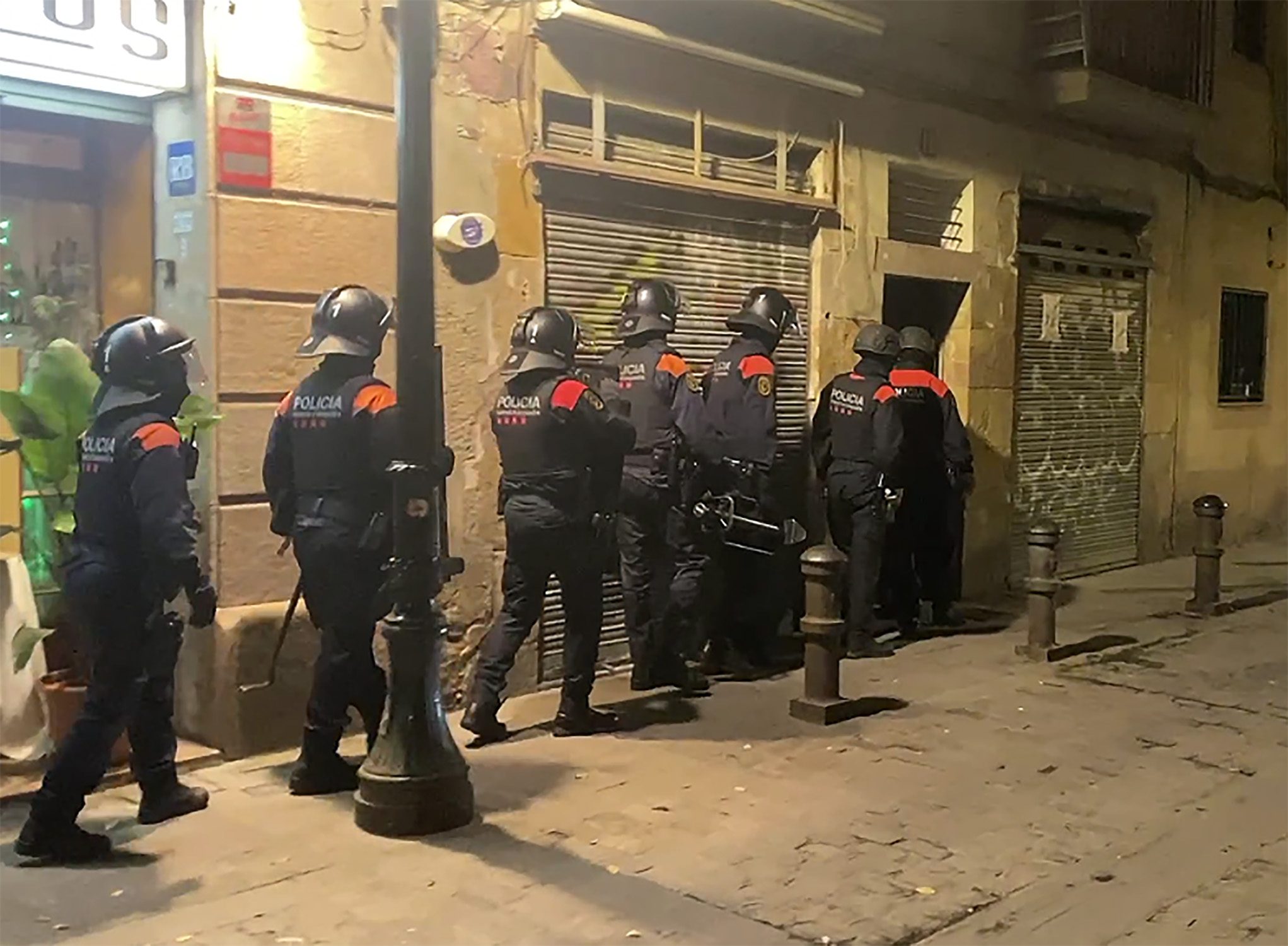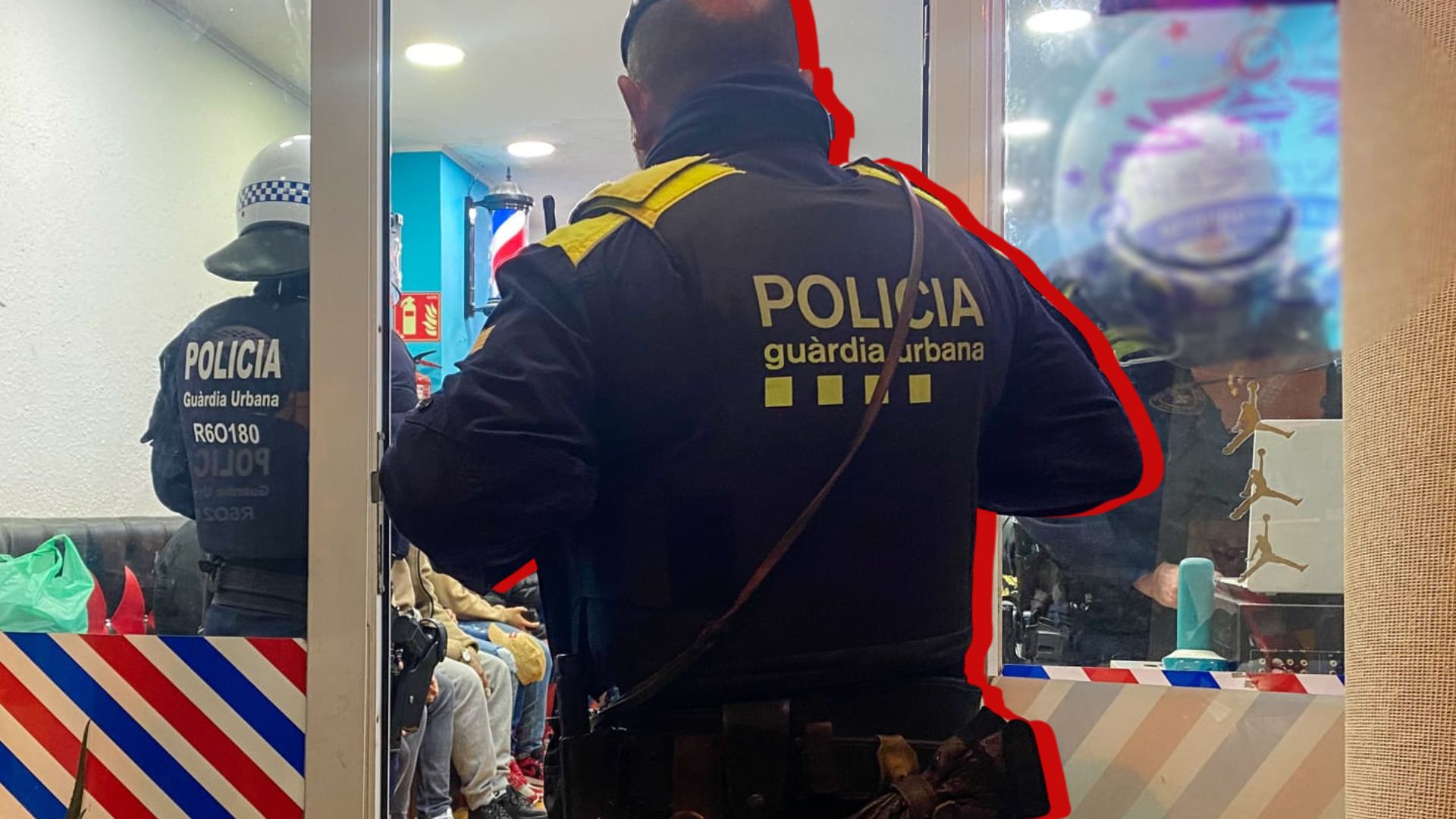A significant police raid on the narcopisos - or "drug apartments" - in Barcelona's El Raval district. A joint investigation by Barcelona's Guàrdia Urbana city police and the Catalan Mossos d'Esquadra force has succeeded in putting a name and a face to one of the strongmen of this business based on converting apartments into retail points for drugs to local users. It's a trade based on small amounts of drugs - cocaine, heroin and crack - in doses that are as cheap as 5 euros.
In addition to the crime against public health involved in this drugs business, it generates nightmare situations in apartment buildings where narcopisos appear, due to noise, conflict and activity generated by customers, 24 hours a day. Combatting these flats has become a priority for the Guàrdia Urbana, who are now fast-tracking their investigations of such narcopisos, so that judges can authorize them to dismantle the illegal ventures within a month. But as well, there are in-depth investigations, like this one which ElCaso.cat can now report: the Chaca case.
The investigators, thanks to public cooperation and the proximity of the officers, who are in direct contact with the residents suffering the problems of anti-social behaviour and law and order breakdown generated by these retail points, and the drugs they are centred on, had, over a period of time, gradually tightened the circle around the famous Chaca. Everyone was talking about him. The drug retailers - "shiftworkers" - those who take charge of the ordinary management of the flats and of selling drugs to customers, had spoken of a certain Chaca and residents of the central Barcelona district gave descriptions that matched in all the apartments they were investigating. The work of the Public Health specialist officers in the two police forces led them to his identity. He was not a person known to the police, having no criminal record, and had not been previously investigated for crimes of this type.
Chaca and the control of the Raval 'narcopisos'
He had regular habits: he moved around by scooter and visited the apartments he controlled or the new ones that opened. He had two minders, who travelled ahead of him, making sure that the streets were clear and that police did not have the apartments under surveillance. As Guàrdia Urbana officers from the Ciutat Vella police station explained to ElCaso.cat, the man led a normal life and, after taking his daughter to school, he visited the apartments he controlled to check whether there were problems to be solved. Just like a tourist apartments manager - although with bodyguards to alert him to danger - he himself hired tradespeople, using his real name, to fix the bell or the doors, if necessary, of the flats that they were used as points of sale and distribution.
This investigation has made it possible to dismantle six narcopisos, all in the central part of the Raval, and also two warehouses and apartments where those arrested lived - also Chaca's home. But the stand-out aspect of this investigation, which has resulted in more than a dozen arrests, is that it has got to the core: not only sales and distribution points have been closed, but three different levels of Chaca's business have been dismantled.

Below "the man" himself, on a second rung, the police investigators were able to locate two people who were in charge of setting up the flats - security cameras, internet, fortified doors. - and also had the job of finding "frontpeople" who would officially rent the flats, paying the deposit and after 2-3 months abandoning the places, and opening a new flat. On the bottom rung of the ladder, were the so-called "shift workers" who staffed the apartments round the clock and made the sales, some of them immigrants of Dominican origin among other nationalities. Some of these individuals also have drug habits, and they are paid, as has been learned from other investigations, around 1,400 euros a month.
Collect the takings and hand over the drugs
During the surveillance carried out to clarify who Chaca was and how the narcopiso network was organized, police officers were also able to find out how the drug was distributed to the various retail points. One of Chaca's men, on a scooter, would make the route between the flats, collect the money, would find out in each flat what was needed in terms of supplies, and he would end up in a flat that served as a warehouse, where he would stock up and start the route again to distribute the drugs. And then he repeated it again. Collect the takings of each point of sale, picking up new drug stocks and distributing them. In less than an hour he finished his route around all the apartments and returned to the warehouse.
It is a system that ensures that, if the police enter the flat - "and they know that sooner or later we will enter", says one of the city police officers - they are unlikely to find large quantities of drugs, thus also avoiding the possibility that other criminal gangs will attack them to get the drugs. To defend themselves in case of assault, the warehouse managers had two firearms.
The raids on the apartments, coordinated across 12 different locations, some of these drug warehouses and Chaca's residence, were made on December 21st last year. Fifteen people were arrested, including Chaca, who was arrested at his home, surprised by the police action, and the goods confiscated included half a kilo of drugs, 10,000 euros in cash, two vehicles and two firearms. Despite having dismantled the six narcopisos that served as points of retail and drug consumption, those arrested were released on bail, pending their court summons. Chaca was left without a passport and unable to leave Spain, but free.
The leaders of the two forces, Guàrdia Urbana and Mossos d'Esquadra are celebrating the successes of the Chaca investigation case, in which, for the first time, the police action did much more than just dismantle a single apartment. At the same time, they are appreciative of the public cooperation with the officers, achieved through the proximity to residents and local shopowners of the Guàrdia Urbana neighbourhood police but also through plainclothes officers. However, they say that this strategy must be maintained to keep the drugs situation in Ciutat Vella under control and prevent the heart of the city from turning into chaos.

